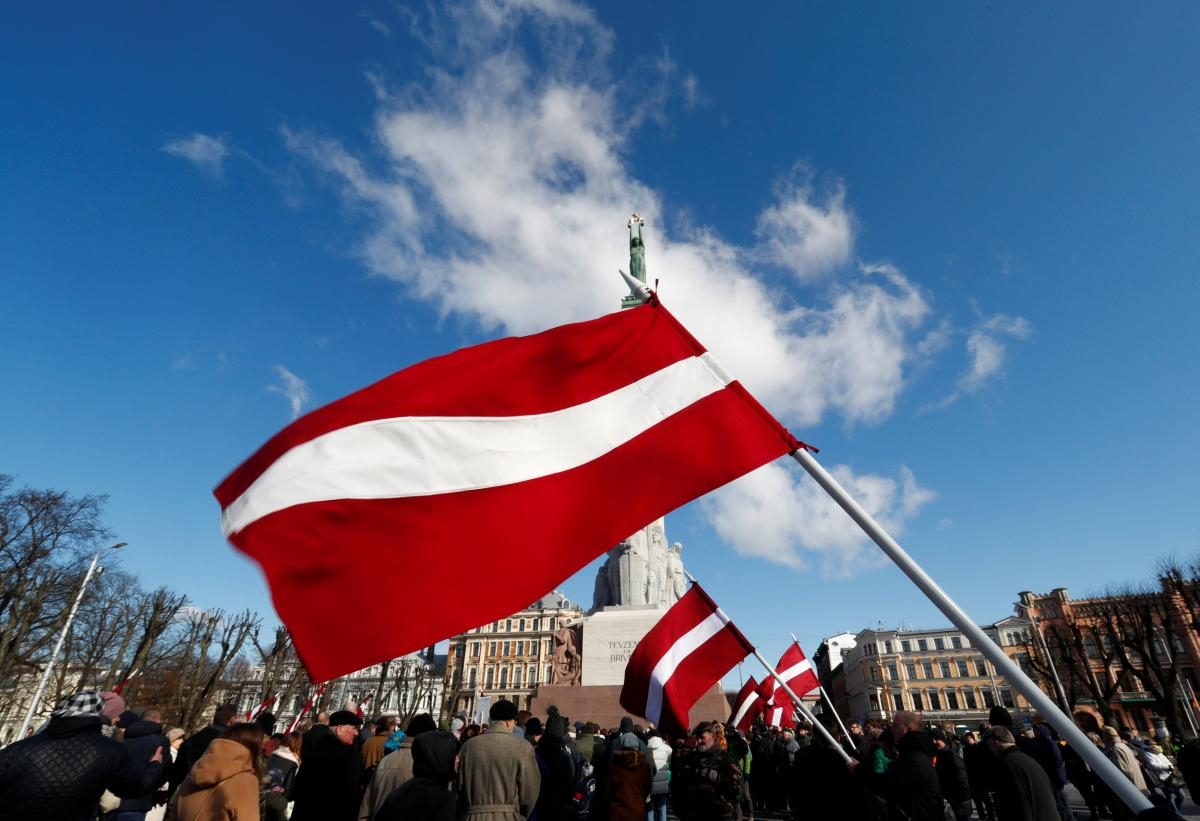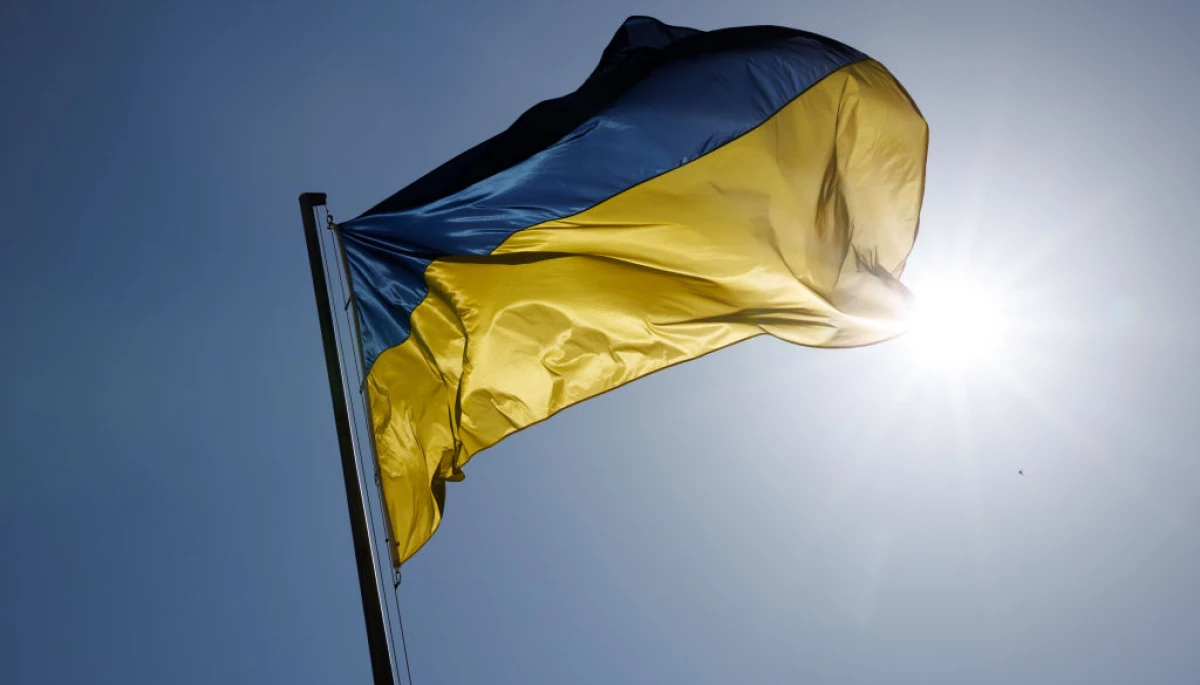“Recently known Ukrainian volunteer and public figure Sergey Pritula expressed his opinion on the introduction of Non -Citizens in Ukraine. It is about granting a special legal status for persons who are suspected of disloyalty to the state. For example, for people who cooperate with Russian special services, convicted for treason or collaboration, spread “Russian narratives” or the”, – WRITE ON: ua.news
Recently famous Ukrainian volunteer and public figure Sergey Pritula on their social networks He said Opinion on the introduction of the Institute of Non -Citizens in Ukraine. It is about granting a special legal status for persons who are suspected of disloyalty to the state. For example, people who cooperate with Russian special services are convicted of treason or collaboration, distribute “Russian narratives” or “expect to Russian peace.”
The volunteer post has caused a violent public debate: under his post more than 1000 comments. However, in general, this far discourse is not new.
After 2014, that is, before the start of a full -scale invasion in 2022, but after the start of the war in the Donbass, similar ideas were also heard. Similar things were expressed by both military, bloggers or public figures, and some politicians.
Now, in the face of prolonged aggression from Russia, these initiatives receive new iterations, and at the same time require careful analysis. What is the Non -Citizenship Institute, where and why did it come from, how it works and is this practice needed by Ukraine? UA.news political observer Nikita Trachuk Together with the experts he dealt with the question.
What is the Non -Citizens’ Institute
The Institute of Non -Citizens is a legal status in which part of the population, even for a long time residing in the state, is deprived of full citizenship and relevant political and social rights. These people have special passports: “non -citizens”. That is, there are ordinary citizens, but there are “non -citizens”. It may sound somewhat strange, but in fact, everything is clear if you understand.
The most famous examples of this approach – Latvia and Estonia who, after the collapse of the USSR, decided not to grant a large number of residents – mostly Russian -speaking and ethnic Russians – who arrived or were born in the Soviet period. Such persons were given “citizenship of non -citizens”. The idea is to maintain the right to accommodate, education, medicine, move, and so on, but limit the suffrage, the ability to occupy public positions and access to certain social programs.
The purpose of such a policy on paper is to protect national identity, preserve political civic unity and prevent potential separatist movements. However, this practice was actively criticized by international human rights organizations and institutions – in particular, Amnesty International and the Council of Europe – as discriminatory by linguistic and/or ethnic trait that creates artificial barriers to integration into society. And in general, as a result, the results of this policy, to put it mildly, are ambiguous.

Threats of the Non -Citizens Institute for Ukraine
In the conditions of war and social tension, in conditions of constant stress and severe psycho -emotional instability, society is always prone to radical, ill -considered, rigid and even cruel decisions. These are the basics of sociology and social psychology, and Ukraine, unfortunately, is no exception.
Today, many people think that it is necessary to introduce radical measures against the “enemies of the people”. Such people can be understood. In the ideal world, it should increase the security of the state and eradicate internal threats.
However, emotionality should not be dominant in behavior and political decisions, especially at the state level. The Non -Citizen Institute requires systematic analysis with risk assessment and side effects. It is here that his main threats to Ukraine lies.
The first threat – The illegality of such practices is already at the stage of discussion. To get all or almost all the answers, it is enough to open Article 25 Constitution of Ukraine. And she says that “a citizen of Ukraine cannot be deprived of citizenship and the right to change citizenship. A citizen of Ukraine cannot be expelled outside Ukraine or issued to another state. ” However, we are well aware that in this aspect the Basic Law has not been working for a long time.
The second threat – external criticism and reputation losses. According to the Baltic experience, the Institute of “Non -Citizens” causes considerable concern in the international arena. Resolutions, statements and criticism of the governments of the countries that apply this practice came from the Council of Europe, the European Union and numerous human rights defenders. Such policy is expected to be perceived as a violation of the principle of equality before the law and discrimination on a linguistic or ethnic trait.
For Ukraine, which strives for integration into European structures, such an initiative can be detrimental to the image, to give important partners a reason for doubts about democracy and human rights – and in this regard, there are issues. Well, what a bust for the propaganda of the Russian Federation and other unfriendly regimes will give this decision, and say nothing. Everything is clear here.
Third threat – risks of politically motivated decisions. Any tool that gives the state the opportunity to deprive citizenship or rights in reality can be a powerful repressive mechanism. In Ukraine, a sufficiently transparent and independent mechanism of justice was not formed. Criminal cases are often attached to political motives, in some places banal errors in documents, judicial negligence or slander in the media are occurring. As a result, not only citizenship but also the right to work, social guarantees and even safe stay in the country can be lost.
The fourth threat – There is already a restriction of rights in the conditions of martial law. In the face of full -scale Russian aggression, Ukrainians have already felt a loss of a number of civil freedoms or a “suspension”. This is especially true for men of mobilization age. The introduction of additional mechanisms of this kind can only intensify distrust of state institutions and deepen social cracks. In such circumstances, a policy aimed at eliminating part of the population from citizenship can have a negative impact on and so available lines of confrontation within society.
The fifth threat – Demographic catastrophe Ukraine. Currently, the situation with demography is critical: the highest mortality rate in Europe, the lowest fertility in the world, large -scale emigration, losses in the war, etc. In such circumstances, every citizen is, although it does not sound too correct, a resource that is keenly lacking in the state.

Questions about efficiency
The experience of Latvia and Estonia Demonstrates: even among society, there were dozens of reality, if not hundreds of thousands of absolutely ordinary and completely loyal people who simply did not receive citizenship because of bureaucratic obstacles and fears of young states. Subsequently, these countries were forced to create special initiatives of dialogue and naturalization programs to smooth the consequences. And thousands of “extra” persons actually remained on the verge of society, not having the opportunity to fully integrate.
The Non -Citizen Institute has high potential for the internal escalation of split: both political and social. Citizenship discrimination is a violation of human rights that causes criticism of the international community and complicates European integration aspirations. And in the presence of legal conflicts, this tool will easily turn into a repressive rather than preventive.
In the face of a grueling war and the proximity of demographic collapse, Ukraine requires not new forms of isolation or segregation, but on the contrary of qualitative integration of human resources. And this is already the moment that there is nothing to say from the point of view of the Constitution: it is illegal and a point.

Expert opinions
Head of Regional Security and Conflict Research Foundation “Democratic Initiatives” Maria Zolkina It is critical of the idea of ”non -citizenship”. She believes that this is the case when, under the slogans of support of the state and its stability, it is suggested to break the legal basis.
“All this is very beautiful (that is, populist) sounds: traitors, corrupt officials and so on have no right to use the privileges of citizenship – we will deprive them of them. And the crowd will applaud, forgetting that it is necessary to start a judicial system, in legal sentences and the work of which there should be no doubt. And then somehow it turns out: here we have a “Portnovshchina” in the courts, but let’s get those whom it will accuse or suspect something there, we will deprive citizenship. Few cases of administration of administrative resources or politically motivated decisions? ” – Maria Zolkina is asked.
Political scientist, head of the Third Sector Center Andriy Zolotarev He also considers the idea of ”non -citizenship” detrimental to Ukraine. According to the expert, those who offer it should “have a riveting in their heads.”
“The idea of introducing the Non -Citizens, which we heard from Mr. Pritula, is harmful and dangerous to the state. Especially now, just during the war. But not only because it destroys the unity of the country, the unity of society, dividing citizens into “right” and “wrong” citizens. This idea was taken from the Baltic countries. But they forgot about some nuances. Yes, “non -citizens” are deprived of the opportunity to participate in political life, cannot work as lawyers, work in state structures, etc. But they do not have such a duty as military service.
That is why during the war to offer it – well it is necessary to have at least a riveting in your head. And when people offer it to a country that has lost 40% of human capital in recent years and is in a acute demographic crisis, it is just a bad mind. And, unfortunately, it is a continuation of the policy of segmentation of society. These people do not understand that sometimes, by fighting Russian imperialism, they, on the contrary, reinforce it. People use the logic of the Bolsheviks. Who is not with us, he is against us. But in order for the state to be viable in such conditions, having such a powerful enemy as modern Russia, one must use other logic, ”, – confident Andrey Zolotarev.
However, the volunteer himself Sergei Pritula He considers otherwise. In his post, he is guided by another logic.
“I think that we have long needed to start a wide public discussion about the non -citizen institute – the status in which a person lives in the country, has basic rights, but has no political influence: he does not vote or choose … Yes, international law warns against such institutions. But for example, in Latvia and Estonia, people who have not passed naturalization after independence have received “gray passports”. In this way, young states were protected from the colonial plume. Ukraine, however, allowed to leave this burden. Maybe it’s time to revise this part of the social contract? This should be changed. And the sooner the better! ” – says Sergei Pritula.

Summarizing, although the logic of the Non -Citizens has widespread emotional support in times of threats and challenges, its implementation in Ukraine is too risky today. It carries a maximum of threats and a minimum of benefits and is, rather, a manifestation of the plane of emotional, not rational.
